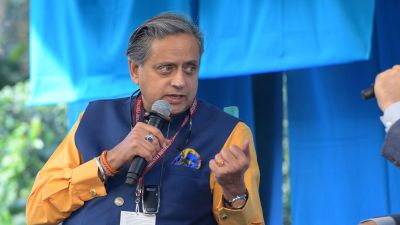The Securities and Exchange Board of India (Sebi) will take up the recent report of the high-level committee on conflict of interest, disclosures and related matters of its members and officials for discussion in its meeting next month, Chairman Tuhin Kanta Pandey said Friday. The Sebi board is slated to meet next on December 17.
In its report released on November 12, the committee had suggested a slew of reforms including a multi-tier disclosure regime that involves the chairman, whole-time members and Sebi employees at the level of chief general manager (CGM) and above, being required to make a public disclosure of assets and liabilities statement.

“The report will be taken up in the next board meeting. The board will take a final call on the recommendations made in the report,” Pandey told reporters on the sidelines of the inauguration of the Sebi pavilion at the India International Trade Fair (IITF).
The report assumes significance since the regulator had formed the expert committee in March this year against the backdrop of former Sebi chief Madhabi Puri Buch facing allegations from now-defunct US-based short seller Hindenburg Research of conflict of interest. The panel of experts was tasked with assessing the adequacy of Sebi’s framework regarding conflict of interest and disclosure of interests, and to propose reforms aimed at enhancing transparency, accountability, and ethical standards.
The committee has also recommended the establishment of a secure, confidential and anonymous whistleblower system for reporting actual, potential, or perceived conflicts of interest by board members, employees, and external stakeholders, including market infrastructure institutions, market intermediaries, market participants, and the public.
It has also proposed uniform application of restrictions on investments and trading to the chairman and whole-time members as applicable to employees under the Sebi (Employees’ Service) Regulations, 2001. It suggested including the chairman and the whole-time members within the definition of ‘insider’ under the Sebi (Prohibition of Insider Trading) Regulations, 2015. Part-time members, who do not handle Sebi’s day-to-day regulatory activities, are exempted from the investment restrictions. However, they would be obliged to make necessary disclosures, and not trade based on unpublished price-sensitive information.
The committee has suggested a cooling-off period of two years, implying that a former member or employee may not appear before or against Sebi in any recognition, adjudication, settlement or approval matter for a period of two years from the date of retirement or from the date of being relieved from Sebi. This will be applicable to contractual employees, consultants, and advisors.
Investor protection
Story continues below this ad
Pandey also said that there is a need to bridge the gap between investor awareness and participation in the securities market, underlining the need to educate them to ensure informed investments.
Citing data from an investor survey by Sebi and Sebi regulated institutions, which said 63 per cent households have knowledge about products available in the securities markets, but only 9.5 per cent of them are investing in securities market, Pandey said there is a greater responsibility on Sebi to ensure that first-time investors make informed decisions.
Pandey said people’s confidence in Indian equity markets is increasing, adding that till October 2025 there were 13.6 crore investors holding more than 21 crore demat accounts. Every day more than 1 lakh demat accounts are being opened, he said. In the mutual fund industry Rs 80 lakh crore worth investments have come in and in 10 years the investments have grown seven times, he said.
“Financial inclusion does not only mean access, it also refers to whether people have knowledge about investment and have confidence in the market. Hence, it’s necessary that we work to bridge the gap between awareness and participation,” Pandey said.
Story continues below this ad
By way of investor protection and investor awareness, there is a need to build greater confidence in the market, he said. The ‘Sebi Check’ tool that was launched from October 1 will aid investors to guard themselves against possible scam, he said.
































